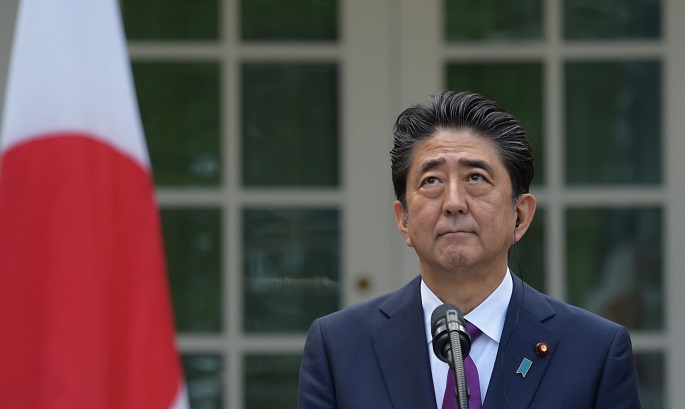Abe pledges extra funds for disaster-hit regions, evacuees
Published : 13 Jul 2018, 12:28
Japanese Prime Minister Shinzo Abe on Friday pledged to offer extra funds for the areas devastated by floods and landslides after torrential rains hit western Japan one week ago, killing more than 200 people and leaving dozens missing.
From the state budgets' reserve funds, the government has already said it would provide 2 billion yen (about 18 million U.S. dollars) to help deal with the disaster's aftereffects.
On Friday, Abe told the 5th meeting of the emergency task force that the government would front-load local allocation tax grants worth about 35 billion yen (311 million U.S. dollars) for 58 affected municipalities, to beef up financial support.
The idea was floated by the prime minister earlier in the week.
Abe also said the government plans to designate the torrential rain that triggered mass-flooding and landslides a "disaster of extreme severity."
Expediting this designation, the prime minister said, will enable local municipalities to receive higher subsidies for reconstruction and restoration work.
Around 5,500 volunteers are working in the affect regions, with more expected to join over the long weekend to provide cleanup as well as relief support in evacuation shelters, Abe said Friday.
But those displaced by the torrential rains, flooding and landslides and forced to take up shelter in emergency evacuation shelters are now facing health issues that could also affect volunteers, experts have pointed out.
The Japan Meteorological Agency (JMA) has warned of temperatures will rise to hotter than 30 degrees Celsius in the affected areas and stay this high for about a week.
With almost 7,000 people staying in evacuation shelters, municipal governments have warned of the possibility of the evacuees suffering from heat-stroke and dehydration.
The health ministry has also warned about the possibility of food poisoning, as in the past people have fallen ill in evacuation shelters after consuming food that had been left out in the heat for too long amid a lack of refrigerators.
As of Friday morning, 207,500 households remained cut off from water supplies, compounding the overall problem of people dehydrating in the affected areas.
In addition, experts have pointed to a shortage of toilet facilities available to those in evacuation shelters and people try to not eat and drink as much as they should to avoid using the toilets.
With many of the toilets set up outside of the emergency shelters, people are reluctant to use the makeshift facilities at night or in the rain, it has been reported.
This has put them at an increased risk of becoming dehydrated or experiencing blood problems, such as clogging, experts have said.
Regarding the rising numbers of volunteers likely to help out with relief efforts this weekend, disaster management minister Hachiro Okonogi said on Friday that they should take care of themselves.


